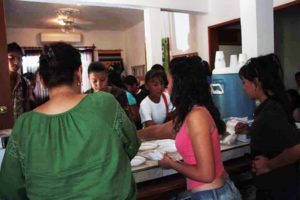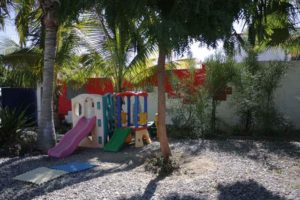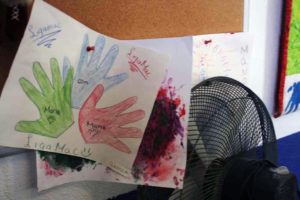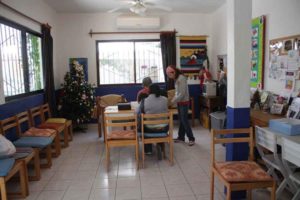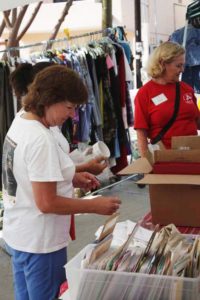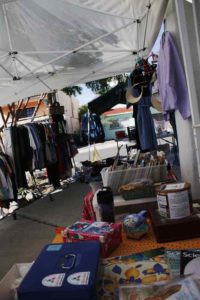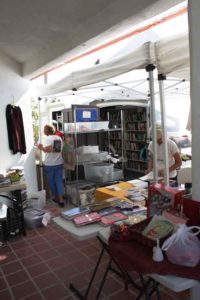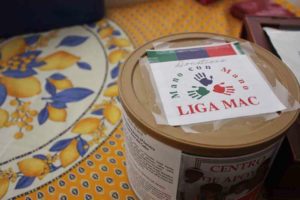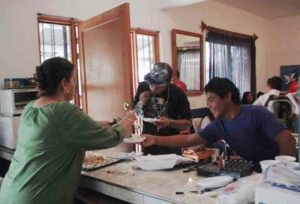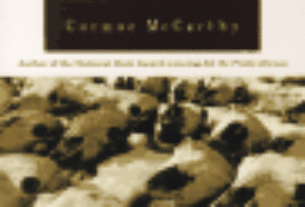The aroma of chicken over a mesquite grill fills the air on one of San Jose del Cabo’s backstreets. Noisy dogs chase each other playfully down dusty, dirt roads nearby. Cheerful mariachi music flows from dimly lit cantinas.
There are no five-star restaurants here, no trendy nightclubs, no exotic resorts; not on this side of town. Few tourists see the unpainted, windowless cinderblock houses or makeshift dwellings called cartones (pronounced car-TONES) that many of these — the underprivileged, the needy, the unemployed — call home.
The tip of Baja California Sur is a place of extremes. On one side there are well-heeled travelers who spend high dollars for plush accommodations, fine dining, and the pursuit of pleasures. On the other? The locals, many of whom came to La Baja chasing the dream of a secure job that would pay significantly more than the daily minimum wage of $4.60 USD.
In the late 1990s, Los Cabos experienced a dizzying surge in tourism. The once-sleepy little fishing village was suddenly the place to be. There were plenty of construction jobs as developers rushed to build resorts, hotels, and condos for the eager tourists. The service industry flourished as well. Workers flocked from the mainland for a chance at the higher-paying jobs.
But misleading press reports that wrapped Los Cabos into the swirl of stories about violence in other parts of Mexico, and a sudden downturn of the U.S. economy brought it all to a screeching halt less than ten years ago, and despite a heavy marketing and public relations investment, it took years to stem that tide. The tourism numbers are starting to turn now, but not at the frantic pace of bygone years.
Many of those who turned to the gem of La Baja for a better life were caught in the undertow of the receding economic waves.
Despite programs and assistance through the state and federal governments, there were many who fell through the cracks.
Founded in 1997, Liga MAC (Mexican, American and Canadian — the nexus of the volunteers who comprise the group) — stepped up to fill the expanding need for services to help families in crisis.
“(The need for assistance) grew really fast when the real estate market went flat in the United States,” Cynthia Wickerink, Liga MAC executive director, said. “We saw it change (even more) the last three or so years. They came here to find jobs, but as soon as the work died, so did their opportunities.”
The organization, which works exclusively with San Jose del Cabo residents, was formed in 1998 when a group of people who regularly visited the area decided to do something to help the locals in need.
“San Jose had a good reaction (to Liga MAC),” says administrator Blanca Roblero, whom Wickerink describes as the heart and soul of the operation. “A lot of people living here came from other towns looking for a better life. Sometimes that doesn’t happen. But they know if they have a crisis, somebody can help them.”
Nobody realized how much, or how quickly the needs would grow.
“When they started Liga MAC, it was all hand-to-hand and face-to-face,” Wickerink said. “It was a much smaller town, a much smaller situation. We have grown organically with the organization’s size and the community. Right now, we are not growing our programs as much as we are maintaining them, but we helped 2,000 families the last few years. For our area, we feel we are doing a pretty good job.”
Liga Mac’s main office sits behind a ten-foot tall, white cinderblock fence in the heart of one of the neediest neighborhoods.
There’s a large, shaded courtyard where the group can hold training sessions and meetings. Inside? You can tell it is a mostly volunteer operation trying to make ends meet on donated dollars. The office is a hodgepodge of functional, but mismatched, furniture, desks, computers and other office equipment.
But, it is neat, spotlessly clean, and well organized.
On Saturdays, children filter in and out for sessions with volunteers who teach them to speak English. One young boy in the program wants to sharpen his English skills to continue his education. He wants to be an attorney. Another wants to become a tour guide. Even though in their teens, they realize that the higher-paying jobs are reserved for those who are fluent in English. Education is a vital piece of the Liga MAC mission. The agency helps students in good standing who are in jeopardy of leaving school because of financial hardship with the purchase of mandatory school uniforms and supplies.
The office is also where families can come for food vouchers or to seek medical assistance.
A couple of miles away, volunteers are busy stocking the shelves of a used book store. The shop is a small house that was converted to sell books and host yard sales to help raise funds for the organization.
Most of the funding, however, comes from donations, Wickerink says. There is also an annual Jazz Festival — one of the social events of the year in La Baja — and Liga MAC also receives some funding from the Cabo Celebrity Golf Invitational. The event, created by four-time LPGA champion Lorena Ochoa, also helps fund her foundation, which was created to provide opportunity for children and adults with family based health, education and inclusion programs delivered through family golf activities.
This year’s kickoff event was hosted by Cabo Dream Homes in the posh One&Only Palmilla Resort’s exclusive Suviche restaurant and bar. Participants included former politician-actor Jesse Ventura, who has become a very familiar face on the streets of Los Cabos; actors Dennis Haysbert, Richard Burgi, Brett Cullen, and Jeffrey Nordling; former NFL players Mike Saxxon and Glenn Pakulak; pro volleyball stars Ryan Mariano and Ed Ratledge; and a host of others.
This isn’t a glitzy, high-profile media-driven event. In fact, the celebrities and donors gathered are a good 1,100 miles from the nearest metropolitan newspaper reporter, television station, or major media outlet of any kind. They are here to raise money, which fuels the charity’s engine.
“We love whatever anybody can share with us, but any organization will tell you what they really need is money,” Wickerink said.
How does that play out?
A donation of $80 USD can feed a family of from four to six for a month. It costs about $250 USD a year to cover the cost of a student’s uniforms, shoes and school supplies. In some cases, Liga MAC also helps with the tuition for high school and higher education.
Because the needs are so vast and varied, Wickerink is hesitant to name a priority.
“One of the most important things we offer is a place where people who hit bottom, with no place to go, can find somebody who cares, who will listen to them,” she said. “They are in desperate situations. Anything we can do helps. We do our best to have somebody listen to their story, or to find someone to help. It’s a support center.
“With our students? We want to be there to give them an education, support them. They want an education so badly, and to know that we are there to give a little push and support and encouragement makes a huge difference to them.
“So I guess our biggest priority is simply to support people.”
What does Liga MAC do?
Basic Needs
Known as “Despensa” in Spanish, Basic Needs is a food distribution program. Twice each month, food vouchers are offered in a short-cycle program designed to help low-income families in crisis. Despensa Program families are given aid for three months and are then reviewed. Most rotate out of the program with new families replacing them.
Medical Aid
Liga MAC assists people in obtaining medical aid — either alone or by partnering with doctors and government agencies, and is able to secure basic health services at a greatly reduced rate. For major medical conditions, Liga MAC works with local and national charitable organizations.
Those in need are usually recommended by social workers and doctors from local hospitals and clinics. Many families and individuals aren’t enrolled in Mexican national health care programs but may be considered for medical assistance from Liga MAC. This aid takes several forms: medicine, lab tests, doctor visits, and other medical services. In many cases, Liga MAC advocates for families and individuals to obtain Seguro Popular, a Mexican national basic health care program.
Education Support
Liga MAC’s scholarship program, Adelante con la Educación, or “ACE,” has operated in San Jose del Cabo since 2004. ACE provides mandatory uniforms and school supplies to students in good academic standing who are in jeopardy of leaving school because of financial hardships at home. Approximately 450 students are now enrolled in ACE in five local junior high schools (secundaria), four local high schools (preparatoria), and local universities.
Social workers and administrators in each school recommend students to the ACE program. Once accepted, students and their parents must sign an agreement with Liga MAC to provide report cards, to participate in Liga MAC’s Community Service projects, and to attend lectures and classes provided by Liga MAC.
Each year, student files are reviewed and updated by Liga MAC and school authorities. Students register at the Liga MAC office during May and June, where files are maintained, by school, for each student. At registration, students are provided with vouchers from local stores for school and sports uniforms and shoes.
Later in the summer, backpacks filled with school supplies are distributed. Students’ tuition for preparatoria and university is paid when necessary.
How to Donate
You can donate online by going to: https://www.givingbackcabo.org/donate-now.

